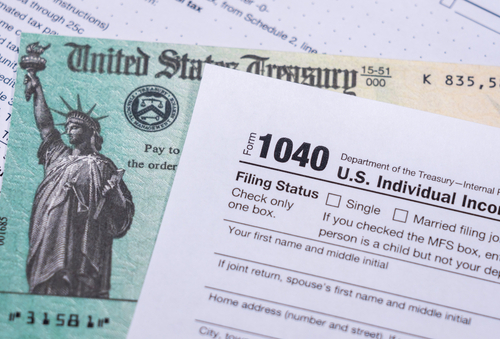
- An original version of this comment letter was submitted on December 9, 2022
Re: Draft 2022 Form 1010
Dear Commissioner O’Donnell and Principal Deputy Chief Counsel Paul:
The Crypto Council for Innovation (CCI) submits this letter in response to the 2022 Form 1040 and the 2022 Draft Form 1040 Instructions (as of December 9, 2022).
CCI is an alliance of crypto industry leaders with a mission to communicate the benefits of crypto and demonstrate its transformational promise. CCI members include some of the leading global companies and investors operating in the crypto industry, including Andreessen Horowitz, Block (formerly Square), Coinbase, Electric Capital, Fidelity Digital Assets, Gemini, Paradigm, and Ribbit Capital. CCI members span the crypto ecosystem and share the goal of encouraging the responsible global regulation of crypto to unlock economic potential, improve lives, foster financial inclusion, protect national security, and disrupt illicit activity.
We appreciate the IRS’s recent efforts to refine the Digital Asset Question (defined below) and recognize the importance to the government of gathering complete and accurate tax reporting information. CCI and its constituent members support a fair and sensible income tax reporting framework that accounts for the varied, constantly evolving, and innovative nature of blockchain technologies. Our comments and recommendations below reflect these goals and focus on reducing taxpayer confusion and providing the IRS with more useful information. We propose: (1) revising the Digital Asset Question to only require a “Yes” response if the taxpayer has engaged in a taxable digital asset transaction that is taxable and (2) defining the term “financial interest in a digital asset” to include only direct and derivative interests in digital assets. We understand that there is limited time before the 2022 Draft Form 1040 Instructions must be finalized. If the time does not permit clarification within the instructions, we recommend the IRS to issue guidance to tax preparers and taxpayers that reflect our comments below.
We are available to directly engage with the IRS and Treasury Department on our comments below as well as on other ongoing guidance projects (e.g., guidance concerning the validation of digital asset transactions, which was included on the most recent IRS priority guidance plan). We believe that a constructive relationship between the cryptocurrency industry and the government will ensure that future guidance reflects the economic and commercial realities of blockchain technologies. We welcome the opportunity to share our members’ knowledge and expertise with U.S. policymakers and regulators.
Discussion and Recommendations for IRS Tax Reporting
The 2022 Draft Form 1040 page 1 includes the following question (the “Digital Asset Question”):
At any time during 2022, did you: (a) receive (as a reward, award, or payment for property or services); or (b) sell, exchange, gift, or otherwise dispose of a digital asset (or a financial interest in a digital asset)?
The Digital Asset Question is overly broad because (1) it requires taxpayers to check “Yes” even if they have engaged only in digital asset transactions that are not taxable and (2) the term “financial interest in a digital asset” could be interpreted to include a wide variety of financial instruments that are only tangentially related to digital assets.
Nontaxable Transactions
The Digital Asset Question currently requires taxpayers to check “Yes” for certain nontaxable (or not clearly taxable) transactions. For example, the gift of a digital asset does not necessarily result in a taxable event, but taxpayers are nevertheless instructed to check “Yes” if they transferred digital assets as a gift. The instructions also require NFT transactions to be reported and do not make exceptions for nontaxable NFT transactions, such as personal transactions (e.g., purchasing concert tickets for personal use) and storing and transmitting data (e.g., storing and transferring pseudonymous health records). The use of in-game videogame digital assets is also not explicitly exempted from reporting under the Digital Asset Question, even though these transactions are generally thought to be nontaxable.
Since the intent of the Form 1040 is to capture a taxpayer’s tax liability, focusing the Digital Asset Question solely on taxable transactions would more effectively assist the IRS in determining the completeness and accuracy of a taxpayer’s Form 1040. Also, by covering nontaxable transactions, the current draft Digital Asset Question may cause improper reporting because taxpayers may mistakenly assume that transactions requiring a “Yes” response to the Digital Asset Question are taxable.
Recommendation
We recommend that the Digital Asset Question be revised as follows: “At any time during 2022, did you receive or dispose of a digital asset (or a financial interest in a digital asset) in a taxable transaction?” We further recommend that the Form 1040 instructions be revised to indicate that the Digital Asset Question should be checked “Yes” only if the taxpayer engaged in a transaction that is taxable under current IRS guidance and provide detailed examples of the taxable transactions (e.g., selling digital assets, exchanging digital assets, receiving digital assets in exchange for property or services).
Financial Interest in Digital Assets
The term “financial interest” is not defined and is therefore open to an overly broad interpretation. For example, taxpayers holding interests in mutual funds, trusts, or investment partnerships that own digital assets may consider those investments “financial interests in digital assets” even if the entity’s investments in digital assets are negligible. Ownership of the stock of a corporation that holds or uses digital assets in the ordinary course of its business could also be viewed as an indirect financial interest in digital assets. Taken to an extreme, even stock of mutual funds and ETFs that hold stock in corporations that use or hold digital assets could be viewed as financial interests in digital assets.1 Given the uncertainty and suggestions that taxpayers should favor over-reporting,2 taxpayers with personal or employer sponsored investment accounts holding equity securities may be advised to check “Yes” when answering the Digital Asset Question. We do not believe that such expansive reporting would provide useful information to the IRS, and we therefore believe that clarification as to the meaning of the term “financial interest” is appropriate.
Recommendation
We recommend that the term “financial interest in a digital asset” be defined to include only (1) direct ownership of a digital asset (e.g., a wallet, brokerage account, or custodial account that holds digital assets) and (2) derivative interests in digital assets, such as forwards, futures, and options that reference an underlying digital asset. The instructions to the Form 1040 should also be revised to specifically exclude equity interests in entities that hold digital assets from the definition of a “financial interest in a digital asset.”
CCI appreciates the opportunity to provide these comments and appreciates your consideration of our feedback. We would be pleased to further engage on the comments contained in this letter or blockchain and digital assets tax issues generally.
Footnotes
1 Under this approach, any transaction involving a fund that references the S&P 500 Index would require that a taxpayer answer “Yes” to the Digital Asset Question because Tesla Inc. (one of the current S&P 500 reference stocks) holds bitcoin.
2 See Nathan Richman, IRS Says 1040 Cryptocurrency Question Is Meant to Be Broad, 177 Tax Notes Federal 868 (Nov. 7, 2022) (“[Ronald Goldstein of the IRS Office of Associate Chief Counsel] said that taxpayers and their representatives shouldn’t be asking if they should check yes but why they can check no.”).

























